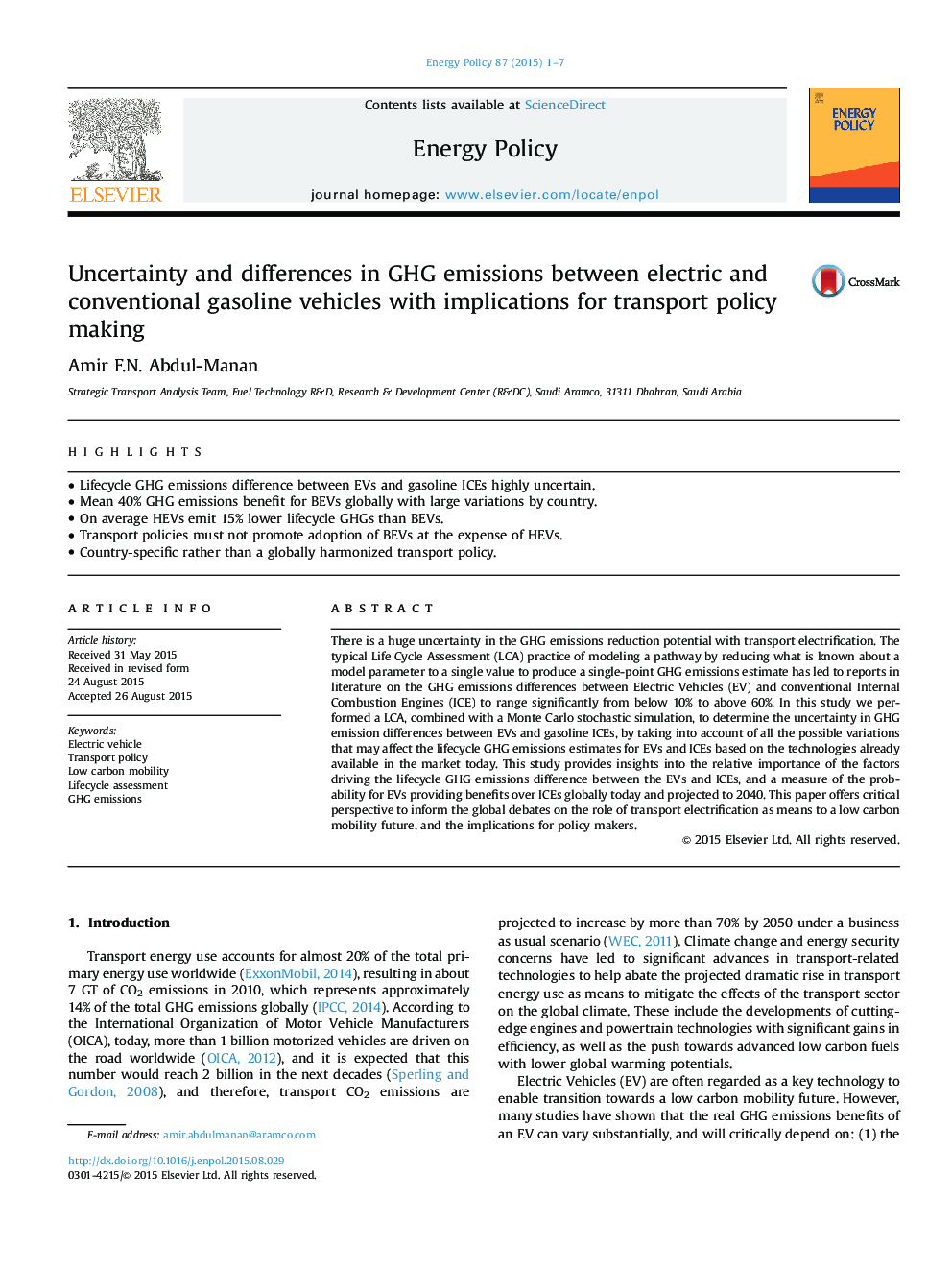| Article ID | Journal | Published Year | Pages | File Type |
|---|---|---|---|---|
| 7400140 | Energy Policy | 2015 | 7 Pages |
Abstract
There is a huge uncertainty in the GHG emissions reduction potential with transport electrification. The typical Life Cycle Assessment (LCA) practice of modeling a pathway by reducing what is known about a model parameter to a single value to produce a single-point GHG emissions estimate has led to reports in literature on the GHG emissions differences between Electric Vehicles (EV) and conventional Internal Combustion Engines (ICE) to range significantly from below 10% to above 60%. In this study we performed a LCA, combined with a Monte Carlo stochastic simulation, to determine the uncertainty in GHG emission differences between EVs and gasoline ICEs, by taking into account of all the possible variations that may affect the lifecycle GHG emissions estimates for EVs and ICEs based on the technologies already available in the market today. This study provides insights into the relative importance of the factors driving the lifecycle GHG emissions difference between the EVs and ICEs, and a measure of the probability for EVs providing benefits over ICEs globally today and projected to 2040. This paper offers critical perspective to inform the global debates on the role of transport electrification as means to a low carbon mobility future, and the implications for policy makers.
Related Topics
Physical Sciences and Engineering
Energy
Energy Engineering and Power Technology
Authors
Amir F.N. Abdul-Manan,
